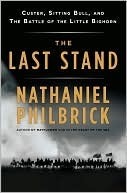More on this book
Community
Kindle Notes & Highlights
Read between
March 23 - April 7, 2021
the beginning of a long string of spectacular victories that ultimately prompted General Philip Sheridan to award Libbie the table on which Grant and Lee signed the surrender at Appomattox.
A crippling hesitation and fear seemed to waft from these gurgling, sun-glinting waters, and as Dr. Paulding could sense, the Lakota and Cheyenne knew it.
There was an unwritten code in the military: Violating an order was accepted—in fact, encouraged—as long as it resulted in victory.
Hindsight has a way of corrupting people’s memories, inviting them to view a past event not as it actually occurred but as they wished it had occurred given the ultimate result.
Terry has slunk back into the shadows of history, letting Custer take center stage in a cumulative tragedy for which Terry was, perhaps more than any other single person, responsible.
at the age of thirty-six, Custer was finding it difficult to marshal the old enthusiasm.
the burden of being Custer had finally caught up with him.
“What, getting cold feet, Cookie,” Gibson taunted, “after all these years with the savages?” “No,” Cooke responded, “but I have a feeling that the next fight will be my last.”
Nothing inspired the enemy like revenge.
It was a maxim in war, Custer wrote, to do what the enemy neither “expects nor desires you to do.”
Tom, all of twenty years old, became the only soldier in the Civil War to win two Medals of Honor.
Years later, several Indians told the cavalryman Hugh Scott that “if Custer had come close and asked for a council instead of attack he could have led them all into the agency without a fight.”
Custer, leaning forward on his horse, frozen like the figures on the Grecian urn described by the poet Keats, in the still, airless atmosphere of eternity.


